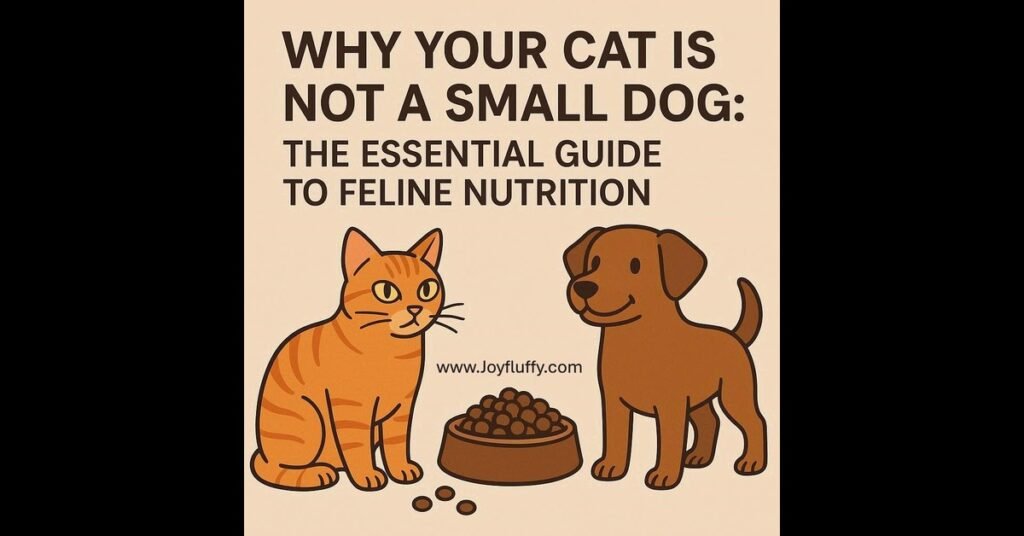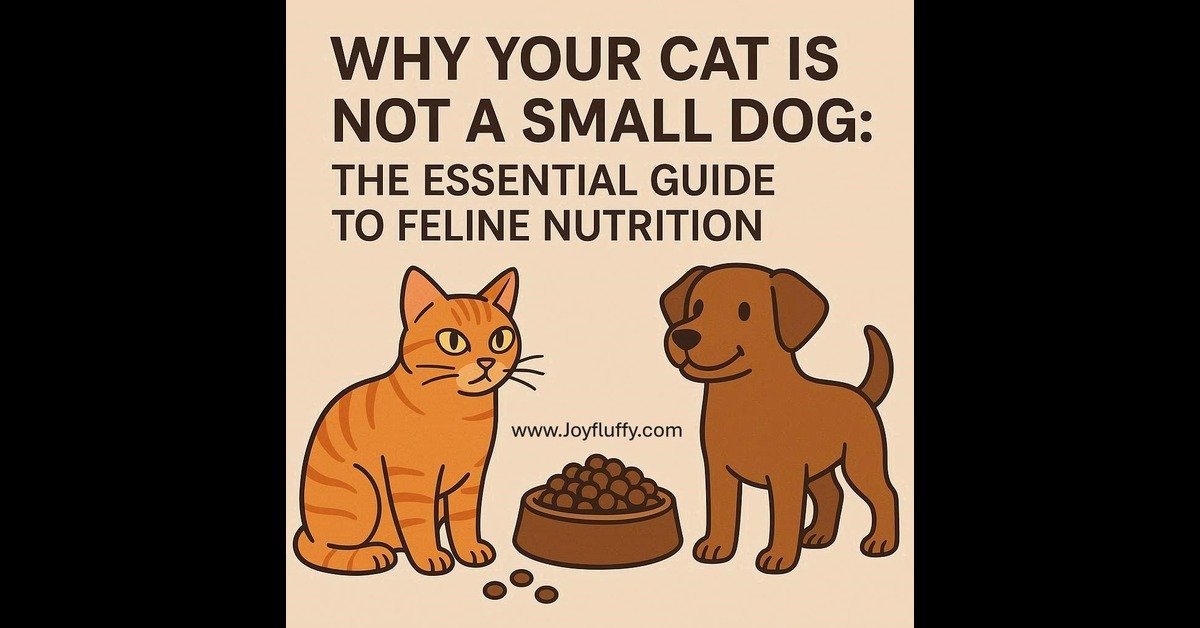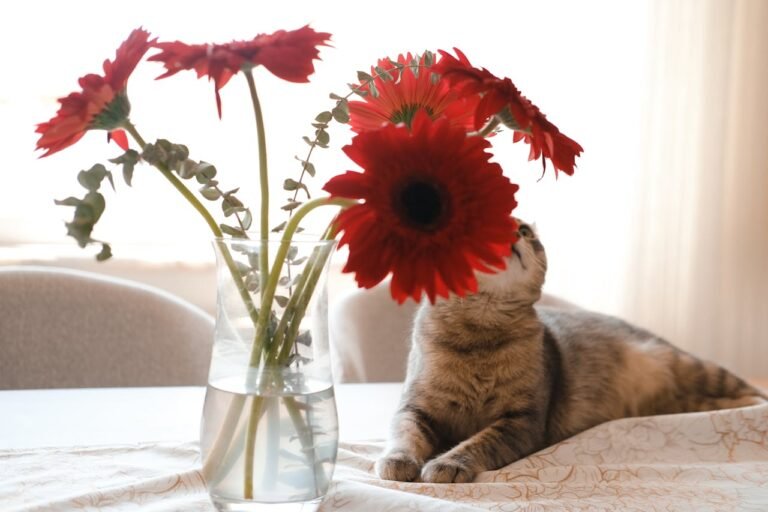Are You Feeding Your Cat Properly? Nutrition Guide

Why Your Cat is Not a Small Dog: The Essential Guide to Feline Nutrition
Understanding Your Obligate Carnivore’s Unique Dietary Needs
As a pet nutritionist who’s spent years working with feline health issues, I’ve seen too many well-meaning cat owners make critical mistakes simply because they didn’t understand one fundamental truth: cats are obligate carnivores. This isn’t just a fancy term – it’s a biological reality that shapes every aspect of your cat’s nutritional needs.
What Does “Obligate Carnivore” Really Mean?
Unlike dogs (omnivores) or humans, cats have evolved to require specific nutrients found ONLY in animal tissue. Their bodies cannot synthesize these essential compounds from plant sources. Without these animal-derived nutrients, cats will develop severe health problems and eventually die – no matter how much love and care you provide.
The Carnivore’s Blueprint: Why Meat is Non-Negotiable
Understanding why your cat needs meat goes beyond simple preference – it’s written into their DNA. Over millions of years of evolution, cats have developed a streamlined digestive system designed specifically for processing animal protein.
Essential Nutrients Your Cat Cannot Live Without:
Taurine for cats is perhaps the most critical amino acid found exclusively in animal tissue. Taurine deficiency leads to dilated cardiomyopathy (heart disease), retinal degeneration, and reproductive problems. Dogs can manufacture taurine from other amino acids, but cats simply cannot.
Preformed Vitamin A is another crucial nutrient. While dogs and humans can convert beta-carotene from plants into usable Vitamin A, cats lack this ability entirely. They must obtain Vitamin A directly from animal organs, particularly liver.
Arachidonic Acid, an essential fatty acid found only in animal fats, is vital for healthy skin, coat, and proper inflammatory response. Plant-based oils simply cannot substitute for this animal-derived nutrient.
Choosing High-Quality Cat Food: Your Action Plan
Not all commercial cat foods are created equal. Learning to read labels effectively can mean the difference between supporting your cat’s health and unknowingly compromising it.
The Great Food Format Debate: Dry vs. Wet vs. Combination
🥣 Dry Food (Kibble)
🥫 Wet Food (Canned)
⚖️ Combination Feeding
The Lifeline: Hydration & Your Cat’s Health
Here’s something that might shock you: most indoor cats exist in a state of chronic, mild dehydration – and their owners have no idea.
The Evolutionary Reason Behind Your Cat’s “Broken” Thirst Drive
Wild cats evolved in arid environments, obtaining most of their water from prey animals (which are about 70% water). This evolutionary adaptation means domestic cats have a naturally low thirst drive and may not drink enough water when fed primarily dry food.
💧 Practical Hydration Solutions That Actually Work:
- Multiple Water Stations: Place water bowls in several locations around your home. Use different materials (ceramic, stainless steel, glass) to find your cat’s preference.
- Cat Water Fountains: The movement and sound of flowing water appeals to cats’ instincts and encourages drinking. Many cats prefer cool, fresh, circulating water over stagnant bowls.
- Food Enhancement: Add warm water or low-sodium chicken broth to both wet and dry food. Even a tablespoon can significantly boost daily water intake.
- Fresh is Best: Change water daily and clean bowls regularly. Cats are sensitive to taste and smell changes in their water.
Your Cat’s Health is in Your Hands
Understanding feline nutrition isn’t just about choosing the right food – it’s about respecting your cat’s evolutionary biology and providing what their body actually needs to thrive. By recognizing that your cat is an obligate carnivore with unique hydration needs, you’re already ahead of many pet owners.
Remember: high-quality animal protein, adequate moisture, and proper hydration aren’t luxuries for cats – they’re necessities. Your informed choices today will directly impact your cat’s quality of life and longevity tomorrow.
Consult Your Veterinarian for Personalized Advice




